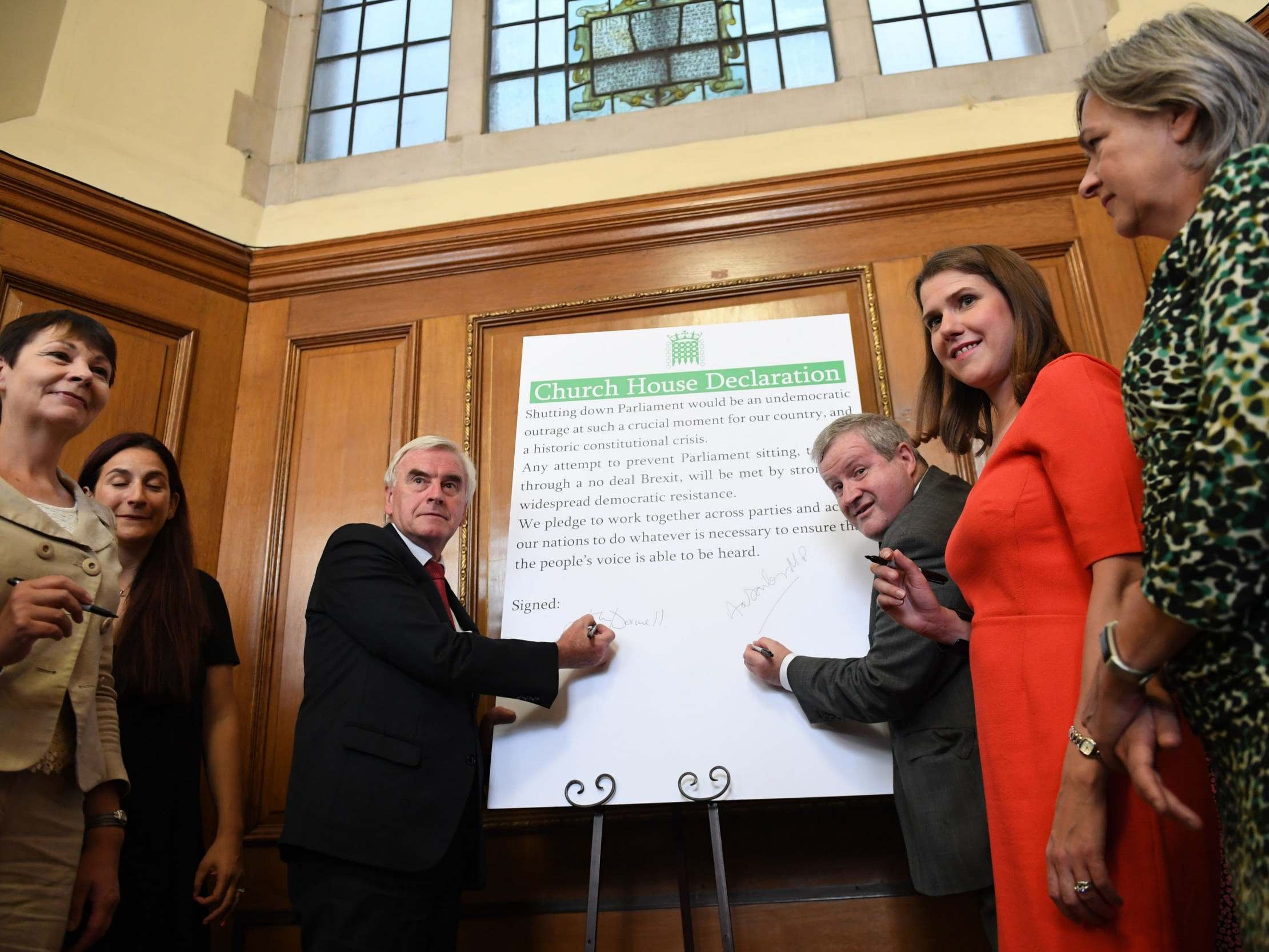Brexit: Would rebel MP plans to form an alternative parliament achieve anything?
Even if this alternative parliament cannot pass laws, it could still prove a thorn in Johnson’s side, says Lizzy Buchan


Rebel MPs have vowed they will convene an alternative House of Commons to debate Brexit if Boris Johnson suspends parliament in the next two weeks.
In a sign of the sheer fury over the prime minister’s plan, opposition MPs have pledged to occupy an alternative Commons chamber during prorogation to continue to scrutinise the government.
Senior parliamentarians met last week at Church House – the wartime home of parliament – where they signed a declaration to continue the work of the Commons, even if they are barred from the Palace of Westminster.
Now, more than 50 cross-party MPs, including Conservative backbenchers Antoinette Sandbach and Guto Bebb, have accused Mr Johnson of presiding over an “unconstitutional coup” and urged all MPs to join them in setting up an alternative parliament.
Extraordinary times sometimes call for extraordinary measures but what would such an act achieve?
The move would effectively be symbolic, as a new parliament would not have the power to carry out the legislative functions of the House of Commons.
Parliament would only be suspended under Mr Johnson’s plan, rather than dissolved as it would be ahead of a general election. This means MPs still retain their seats and the government is still in command, leaving the country in a state of limbo.
But even if this alternative parliament cannot pass laws, it could still prove a thorn in Mr Johnson’s side.
There is genuine public outrage over the prospect of proroguing parliament, as shown by the thousands of demonstrators who took to the streets on Saturday to express their anger.
A rogue chamber could provide a focal point for that fury, diverting media coverage and public attention away from Mr Johnson’s attempts to build a compelling policy agenda outside of his Brexit aims.
While there is a risk it could look a little strange, an alternative parliament also has the advantage of gathering together all the different Brexit factions who oppose no deal.
For a long time, Labour was at odds with the pro-referendum parties – the Liberal Democrats, the SNP, the Greens – over its Brexit strategy, while plenty of Tories want a negotiated Brexit and strongly oppose a disorderly departure.
Through his prorogation plan, Mr Johnson seems to have achieved the impossible by uniting all his warring opponents against him – at least for now.
Join our commenting forum
Join thought-provoking conversations, follow other Independent readers and see their replies
Comments